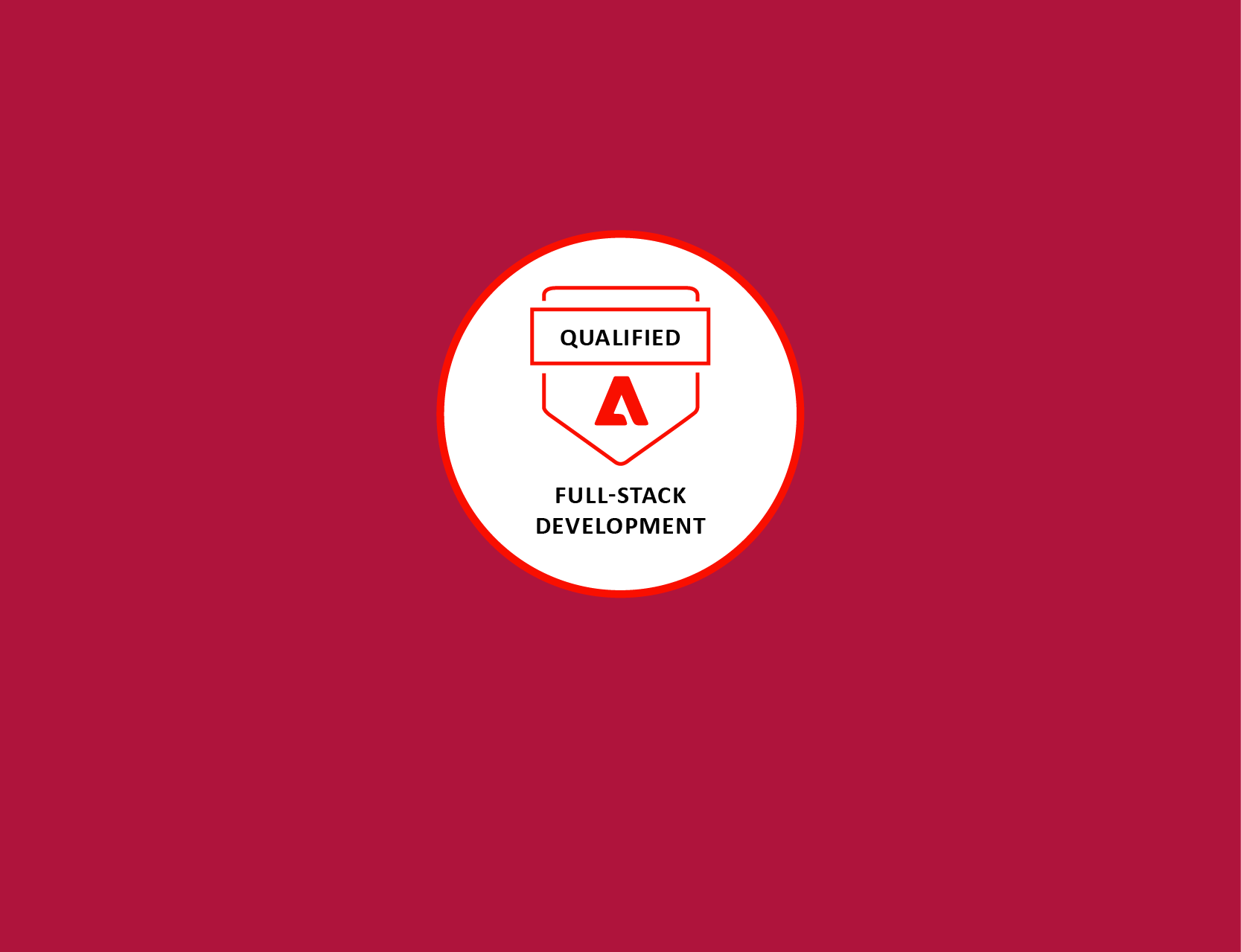Highlight your skills and become Adobe Qualified.
Prove your hands-on experience and gain a competitive edge in your industry by earning a credential through the Adobe Qualified Credential Program.

Prove your hands-on experience and gain a competitive edge in your industry by earning a credential through the Adobe Qualified Credential Program.
Advance your programming expertise with this expert–level certification focused on the full development stack, covering front–end and back–end technologies. Designed for learners eager to build scalable, interactive applications, this certification offers a comprehensive, hands–on introduction to JavaScript, Python, HTML5, and artificial intelligence. Through practical projects, learners will gain proficiency in creating intuitive front–end interfaces, efficient back–end logic, and integrating AI–powered features.
From mastering JavaScript fundamentals and Python programming to developing HTML5 projects and exploring AI through Machine Learning, this level equips learners with the skills to tackle complex, real–world challenges. Graduates will be prepared to design and deploy complete applications, paving the way for rewarding opportunities in software development, artificial intelligence, and digital innovation.
Level 8: Full–Stack Development is designed for learners with a strong foundation in programming who are ready to expand their expertise across both front–end and back–end technologies. It is ideal for individuals passionate about creating complete, dynamic applications and those seeking to master the integration of diverse technologies such as JavaScript, Python, HTML5, and artificial intelligence.
This certification equips learners with the skills and practical experience needed to build scalable, end–to–end applications. Focusing on essential full–stack development techniques, including front–end interfaces, back–end logic, and AI integration, it fosters problem–solving and real–world application skills. This level prepares learners for advanced roles in software development, artificial intelligence, and digital innovation, unlocking exciting opportunities in the rapidly evolving tech industry.
Level 8: Full–Stack Development is an advanced, hands–on certification programme designed to equip learners with the skills to build complete, dynamic applications that integrate both front–end and back–end technologies. Through this modular programme, learners delve into key areas of full–stack development, including JavaScript, Python, HTML5, and artificial intelligence. The modules cover essential topics such as front–end interfaces, server–side programming, database management, and AI integration, providing a comprehensive foundation in end–to–end application development.
This flexible programme allows learners to progress at their own pace, honing technical expertise while working on practical, real–world projects. By completing the modules, learners will deepen their understanding of full–stack development, enhance problem–solving skills, and gain the confidence to build scalable, interactive applications. This certification prepares learners for specialised roles in software development, artificial intelligence, and tech innovation, empowering them to thrive in the dynamic, fast–paced world of technology.
There are four modules:
Each module in the Level 8: Full–Stack Development certification is assessed through practical projects, coding challenges, and real–world development tasks, enabling learners to showcase their proficiency in both front–end and back–end development. This structure allows for flexibility, encouraging learners to advance at their own pace and concentrate on areas that align with their professional aspirations or personal interests.
Upon successful completion of all modules, learners will be awarded the Adobe Qualified Full-Stack Developer – Level 8 Certification.
There is no Pass or Fail. Results are reported in Bands 1–4, with Band 4 representing the highest level of achievement. Band 1 indicates a foundational understanding of full–stack development concepts; Band 2 reflects basic proficiency in integrating front–end and back–end technologies; Band 3 demonstrates advanced knowledge and the ability to create and deploy full–stack applications; and Band 4 signifies exceptional expertise and mastery of comprehensive full–stack development skills.
Level 8: Full–Stack Development is designed for individuals eager to master both front–end and back–end technologies to create fully functional, dynamic web applications. This level emphasises advanced programming techniques, integration of front–end and back–end systems, and the deployment of scalable applications.
It is suitable for learners who are: